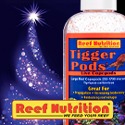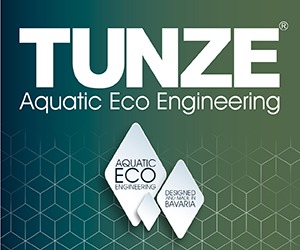MASNA is proud to announce that the Quarter 2, 2018 publication funded by the Dr. Junda Lin Memorial Fund for Publishing Open Access Marine Aquarium Research is now freely available to the public as an open access article.
 In 2017, MASNA introduced the Dr. Junda Lin Memorial Fund for Publishing Open Access Marine Aquarium Research with the goal to off-set the cost to students of publishing research as open access articles in order to promote the spread of scientific ideas to not only scientists, but to anyone who is interested in the research, by making it freely available.
In 2017, MASNA introduced the Dr. Junda Lin Memorial Fund for Publishing Open Access Marine Aquarium Research with the goal to off-set the cost to students of publishing research as open access articles in order to promote the spread of scientific ideas to not only scientists, but to anyone who is interested in the research, by making it freely available.
Rather than in the traditional scientific publishing scheme, where the reader of the scientific article incurs a cost to access the article, with open access articles, the article is available to the world, and the author is charged a fee when the article is accepted by the publisher.
Our Q2 recipient is Dr. Laura Dee, an assistant professor of conservation science based out of the Department of Fisheries, Wildlife, and Conservation Biology at the University of Minnesota in St. Paul, Minnesota. Laura is the primary author of the paper entitled “Assessing Vulnerability of Fish in the U.S. Marine Aquarium Trade”, which was published by Frontiers in Marine Science in January of 2019.
 In her original research article, Dr. Dee identifies several commonly imported species of marine ornamentals that are vulnerable to overfishing by using attributes related to reproductive productivity, success in home aquaria, ease of wild capture, and natural mortality rates.
In her original research article, Dr. Dee identifies several commonly imported species of marine ornamentals that are vulnerable to overfishing by using attributes related to reproductive productivity, success in home aquaria, ease of wild capture, and natural mortality rates.
Ultimately, her findings inform potential avenues in aquaculture research, can be used to guide monitoring efforts for collections and exports, and potentially aid in identifying management interventions for species at highest risk of overcollection. Laura summarizes the importance of this research here:
“Fisheries support the livelihood of millions of people worldwide. However, many of these fisheries lack the data, resources, and expertise needed to perform assessments that ensure proper management of the target species. Additionally, species are subject to a variety of threats including climate change, pollution, and overfishing.
The aquarium fish trade encompasses over 1,800 species of coral reef fishes from over 40 exporting countries. These fisheries support livelihoods, provide benefits to hobbyists, and contribute to education efforts about coral reefs. Like many other fisheries, data for the aquarium trade is lacking, limiting the management that exporting countries can do, and valuable species are threatened by overcollection. Dee et al (2019) assess the vulnerability of 72 popular coral reef fish imported into the United States (U.S.) from the largest exporting countries (by volume), the Philippines and Indonesia. To assess the vulnerability of the selected species, Dee et al. (2019) used a risk assessment method that provides an estimate of relative vulnerability for each species considered.
 The five most vulnerable species were Chromileptes altivelis (Panther Grouper), Plectorhinchus chaetodonoides (Harlequin sweetlips), Pterapogon kauderni (Bangaii cardinalfish), Premnas biaculeatus (Maroon Clownfish) and Echidna nebulosi (Snowflake moray eel). The five least vulnerable species were Halichoeres chrysus (Canary wrasse), Nemateleotris decora (Elegant firefish), Chaetodon lunula (Racoon butterflyfish), Pseudocheilinus hexataenia (Six line wrasse) and Gobiodon citrinus (Citron goby).
The five most vulnerable species were Chromileptes altivelis (Panther Grouper), Plectorhinchus chaetodonoides (Harlequin sweetlips), Pterapogon kauderni (Bangaii cardinalfish), Premnas biaculeatus (Maroon Clownfish) and Echidna nebulosi (Snowflake moray eel). The five least vulnerable species were Halichoeres chrysus (Canary wrasse), Nemateleotris decora (Elegant firefish), Chaetodon lunula (Racoon butterflyfish), Pseudocheilinus hexataenia (Six line wrasse) and Gobiodon citrinus (Citron goby).
Factors that influenced species’ vulnerability varied, with some species affected by low fecundity (ability to produce many offspring), and others affected by harmful collection methods (ex. Needle-spear fishing).
There are several ways to reduce the vulnerability of the highest-ranking species, including investment in research and aquaculture, monitoring of collection and exports, and fisheries management where the fishes are collected. Additionally, retailers and consumers can consider other species or sources, like Aquaculture. Hobbyists and retailers can reference these vulnerability estimates to guide their purchases. Generally, sourcing cultured fish or fish from locations where sustainable collection and management is demonstrated can help reduce the risk of overcollections.”
The article can be found for free here: www.frontiersin.org
Congratulations to Laura and her co-authors!
MASNA welcomes donations from any organization or individual who shares the belief that advancements in science should be freely available to the general public, and those that support MASNA’s mission to encourage the sustainability and ethical growth of the marine aquarium industry through the education of its members and the wider hobbyist community.
For more information and to donate to the fund, please click here: http://masna.org/masna-programs/memorial-publishing-fund/










0 Comments